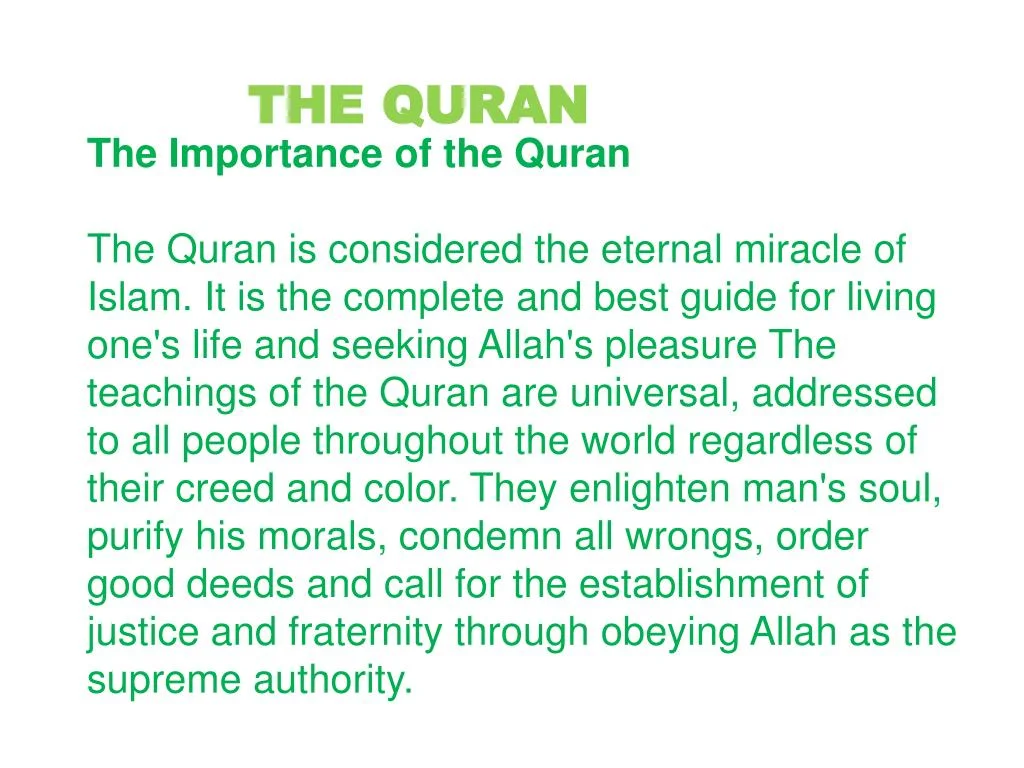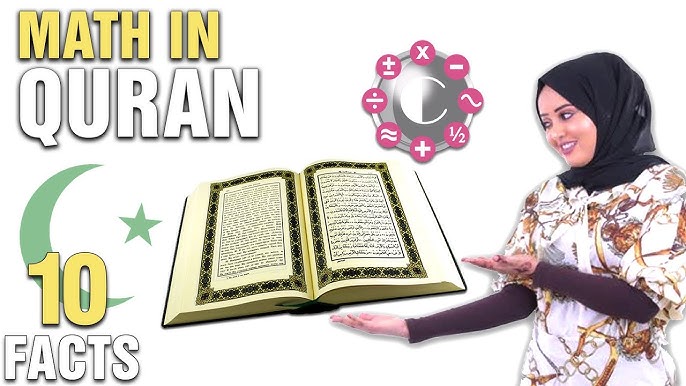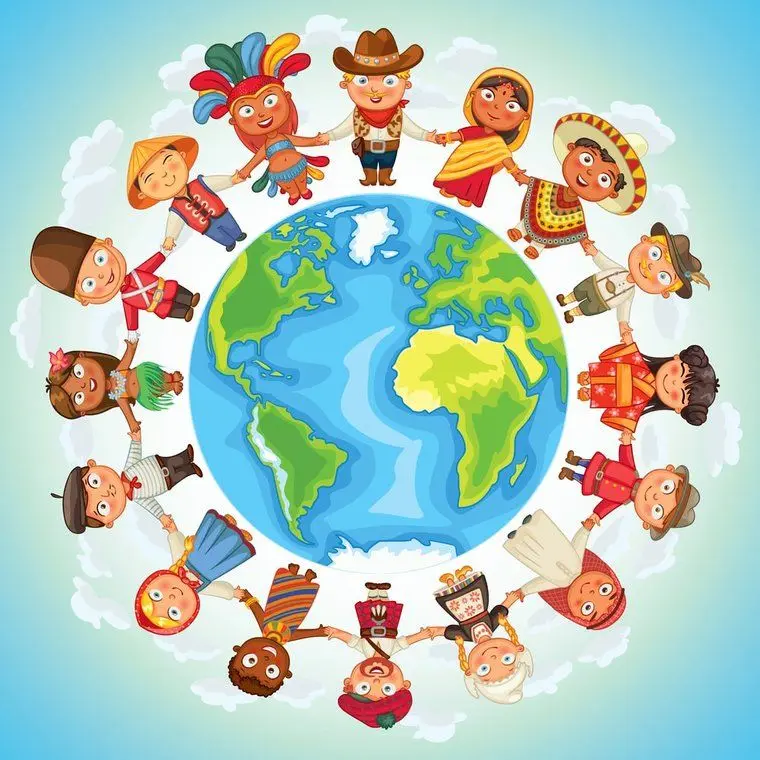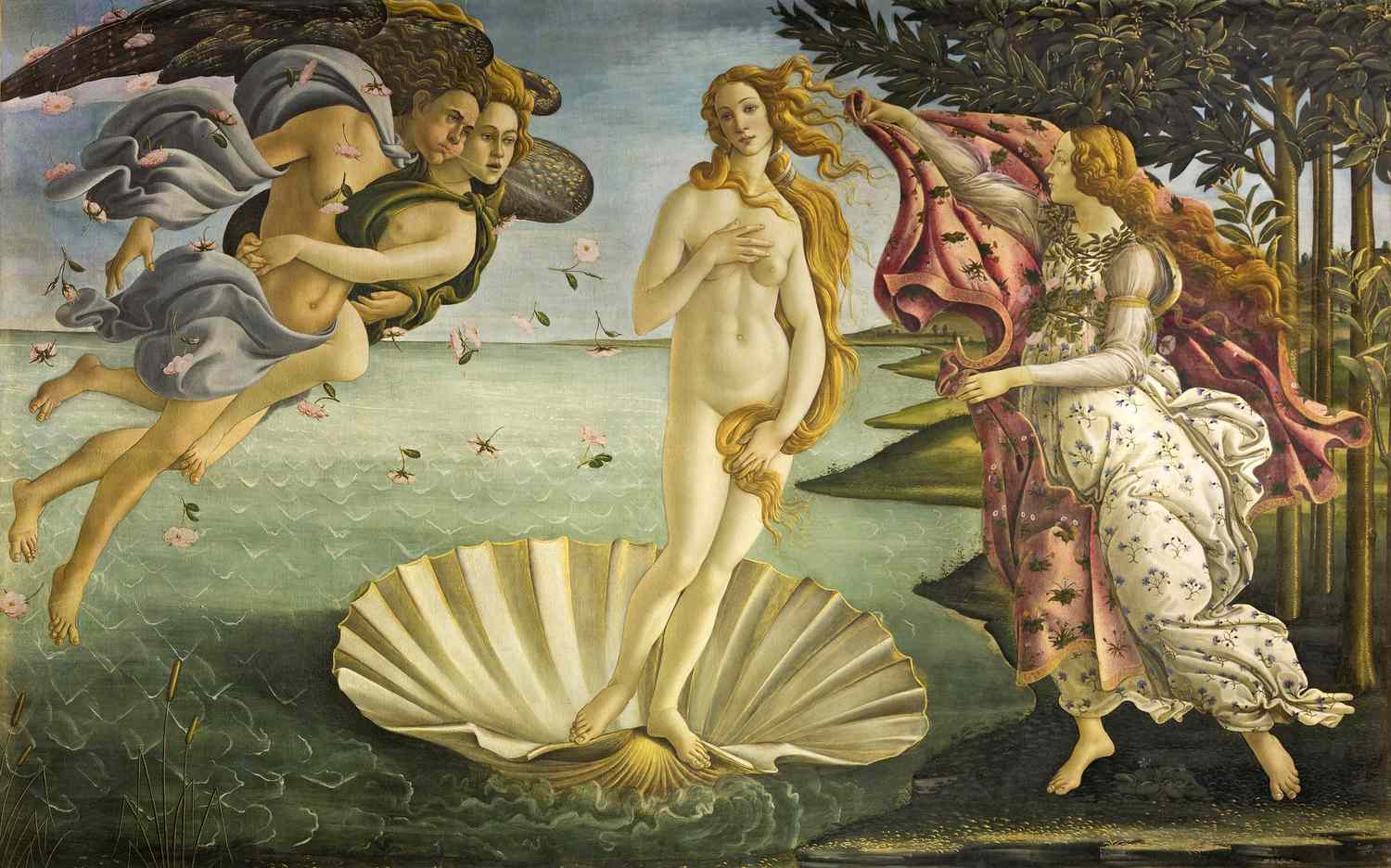Quran: The Quran is the holy book of Islam, containing the teachings and guidance of Allah (God) as revealed to Prophet Muhammad (peace be upon him) over a period of 23 years. It is considered to be the final and complete revelation from God to humanity, and Muslims believe that it contains the truth and guidance necessary for spiritual, moral, and practical living. In this article, we will explore the significance of the Quran and some of its key features.
The Significance of the Quran

For Muslims, the Quran is the central and most important source of guidance in all aspects of life. It provides a comprehensive understanding of the purpose of existence and the way to achieve success in this life and the hereafter. The Quranic teachings cover a wide range of topics, including faith, ethics, social and political issues, economics, family life, and more.
The Quran is also considered to be a miracle in its own right, as it was revealed to Prophet Muhammad (peace be upon him) in a language and style that was considered to be the peak of eloquence and beauty in the Arabic language at the time. Its words and teachings have inspired countless individuals throughout history to lead lives of righteousness, justice, and compassion.
Key Features of the Quran

There are several key features of the Quran that make it a unique and powerful book. Here are some of the most important:
- Unity and Coherence: The Quran is a unified and coherent text, despite being revealed over a period of 23 years. It is divided into 114 chapters, called surahs, each of which addresses a specific topic or theme. However, there is a consistent message and style throughout the book, which reinforces its unity and coherence.
- Language and Style: As mentioned earlier, the Quranic language and style are considered to be miraculous. It is written in classical Arabic, which was the peak of eloquence and beauty in the Arabic language at the time. The language and style of the Quran are so unique and powerful that they continue to inspire and move people today, even those who do not understand Arabic.
- Guidance and Wisdom: The Quran contains a wealth of guidance and wisdom that is relevant to all aspects of life. Its teachings provide a framework for spiritual and moral living, as well as practical guidance on social, economic, and political issues. The Quranic teachings are based on the principles of justice, compassion, and mercy, which are essential for creating a just and peaceful society.
- Preservation and Authenticity: The Quran has been preserved in its original form since the time of Prophet Muhammad (peace be upon him). It has been passed down from generation to generation through a rigorous system of memorization and written transmission. Today, millions of people around the world have memorized the entire Quran, and its authenticity is undisputed.
- Miraculous Nature: considered to be a miracle in its own right, due to its language, style, and content. It contains numerous references to scientific and historical facts that were not known at the time of its revelation. It also contains prophecies that have been fulfilled, such as the prophecy of the conquest of Mecca and the victory of the Roman Empire over the Persian Empire.
The Role of the Quran in Muslim Life
For Muslims, the Quran is the ultimate source of guidance and authority. It provides a framework for spiritual, moral, and practical living, and its teachings are considered to be applicable to all aspects of life. Here are some of the ways in which the Quran is integrated into Muslim life:
- Daily Recitation: Muslims are encouraged to recite the Quran daily, either in Arabic or in translation. The recitation of the Quran is considered to be a form of worship, and it is believed to bring numerous spiritual benefits.
Read Also: Significance of good Friday
![]()





